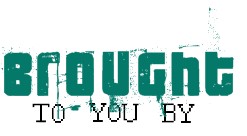GDC 12: The return of Beat'em up Brawlers
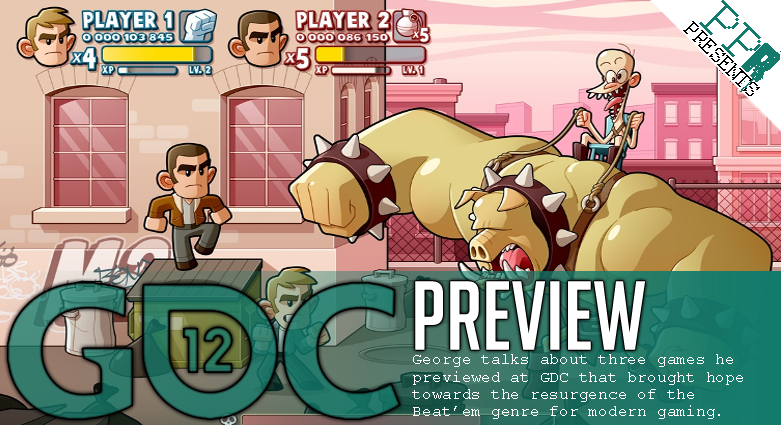
Constantly moving to the right, punching every single moving thing with two or four legs directly in the face that is what it truly is to be beat’em up. In this day and age, the genre hasn’t had the best of journeys, and most of us often fancy the better days wearing rose-tinted glasses of nostalgia. Re-releases and throwbacks aside, three games aim to bring back the rush of beating a roasted turkey out of someone’s chest as we take a look at what they had to offer with some white-knuckled playtime.
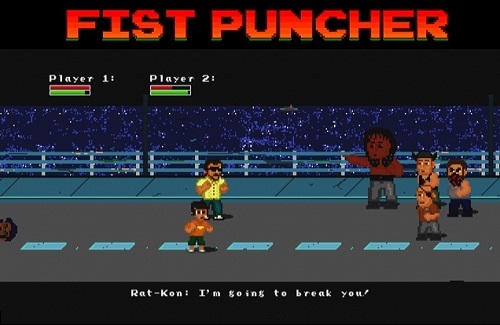 Getting their exposure on IGN’s THE NEXT GAME BOSS, Team2Bit has taken to the streets with their first major development, Fist Puncher. A four-player cooperative brawler, Fist Puncher takes the least likely approach you would imagine for appeal towards the modern gaming. The game actually embraces all of those tired conventions, but it does so with such a tongue-in-cheek mentality that’s so unabashedly unapologetic that one can’t deny the humor no matter how esoteric it can be. The idea of taking on droves of intentionally petty thugs with trivial names, with characters like a martial artist with a PhD in prescribing pain or a political pugilist who campaigns to kick ass, the doctor and president are only a small selection of several different characters you can use. The setting can change anywhere from a Laundromat to a Sauna of violent Eskimos. The absurdity naturally tickles your funny bone and never insults it. Overall, Fist Puncher does relish in the roots of the genre but is one of the few that excels in satire for its presentation and has plenty of potential for to pleasantly surprise you, expect it in the Xbox Live Arcade Indie section sometime within the coming months.
Getting their exposure on IGN’s THE NEXT GAME BOSS, Team2Bit has taken to the streets with their first major development, Fist Puncher. A four-player cooperative brawler, Fist Puncher takes the least likely approach you would imagine for appeal towards the modern gaming. The game actually embraces all of those tired conventions, but it does so with such a tongue-in-cheek mentality that’s so unabashedly unapologetic that one can’t deny the humor no matter how esoteric it can be. The idea of taking on droves of intentionally petty thugs with trivial names, with characters like a martial artist with a PhD in prescribing pain or a political pugilist who campaigns to kick ass, the doctor and president are only a small selection of several different characters you can use. The setting can change anywhere from a Laundromat to a Sauna of violent Eskimos. The absurdity naturally tickles your funny bone and never insults it. Overall, Fist Puncher does relish in the roots of the genre but is one of the few that excels in satire for its presentation and has plenty of potential for to pleasantly surprise you, expect it in the Xbox Live Arcade Indie section sometime within the coming months.
At first glance, this next game definitely incites a strong reminiscent piece of your childhood -- not the kind with pizza-greased joysticks, but rather the rush of collecting stickers to mix and match in your sicker book. Enter Super Combo Man: Struggle’s Adventure, a visually stunning single-plane brawler designed to resemble a child’s sticker book that quite literally pops out at you with every frame of animation. Such as its namesake, the mechanics are centered towards the process of chaining attacks in varied combination, and done so with fluidity that’s deceptively deeper than what meets the eye. Where similar games of the single-plane ilk such as Shank or Dishwasher Samurai in where you can juggle opponents through various means, Super Combo Man possesses a learning curve that introduces weight distribution between enemies and objects in where given the skill in your approach, can seamlessly juggle enemies and chain combos against mobs, along with destructible environments exchanging in and out to extend the combo count.
The arsenal of attacks include quick attacks, which you can change by applying the appropriate directional input that can be exchanged with a strong attack that that boasts its own varied set list. Combining that with jump attacks and a heavy attack that builds up energy through successful combos, your play is open to application and isn't deputized by your skill set. You can openly mash buttons, and while you may get the same results, fighting with strategy creates this exciting tension for combat when swapping tactics that hasn’t been seen since the like of Team Ninja’s Ninja Gaiden. When progressing through the stage, touches like usable objects for weapon use or even obstacle hazards may combine with your approach, while playing a role in stage progression in where enemies need to be defeated in a certain manner to solve puzzles. Super Combo Man could be another shallow brawler to anyone wanting to get rowdy, but its devious depth will keep most players going, all the while being treated to its beautifully stunning visuals.
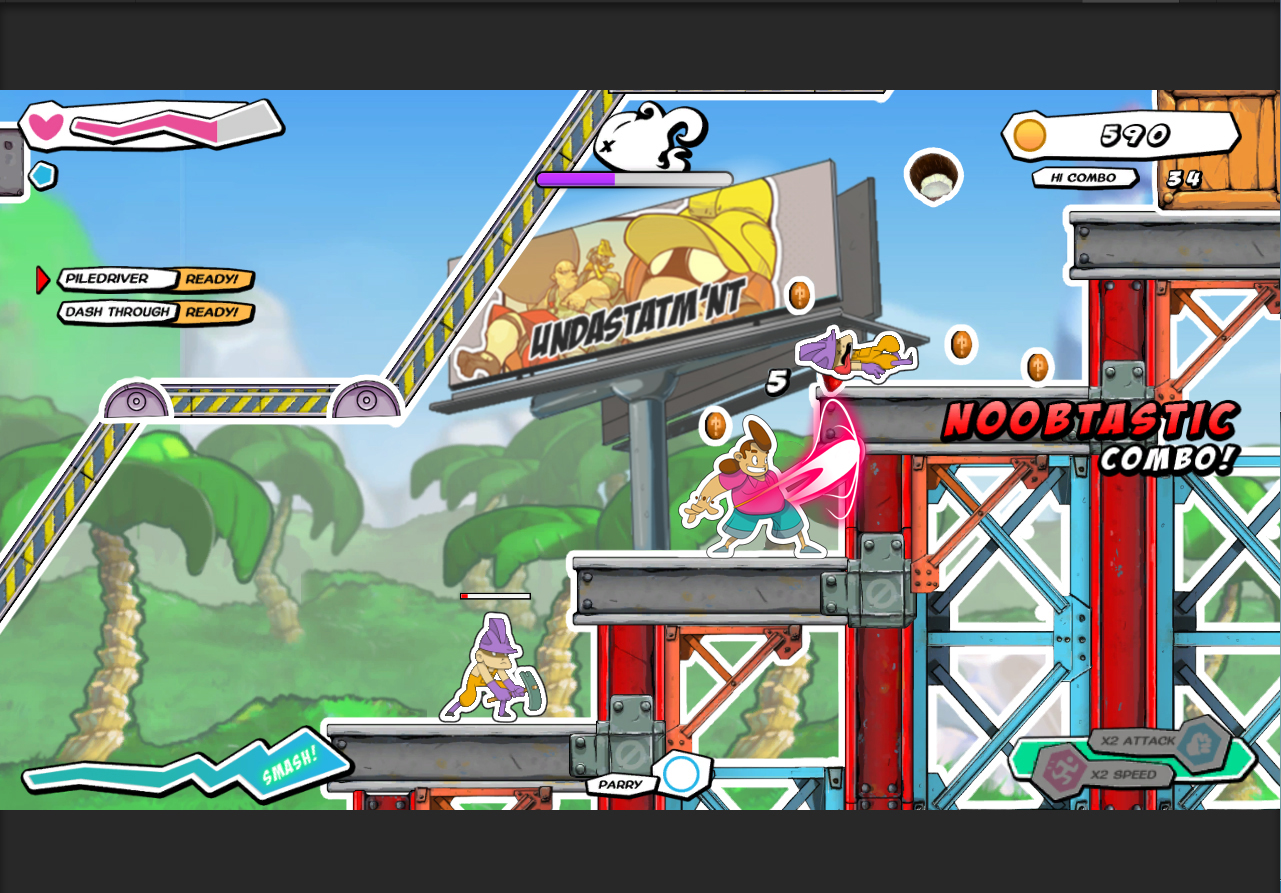
Free to play MMO’s are a dime a dozen as of late, but Kill3rCombo plans to implement that addictive draw into the accessibility of the Beat’em up with Fighters Club. Again, Fighter’s Club takes elation in its roots with simple playability, but still manages to layer the MMO conventions through a subtle application that doesn’t take away from the simple pick-up-and-play formula. Gone are the fetch quests and conquest missioning in your standard fare RPG, and in place of it is the focus on accessible combat. 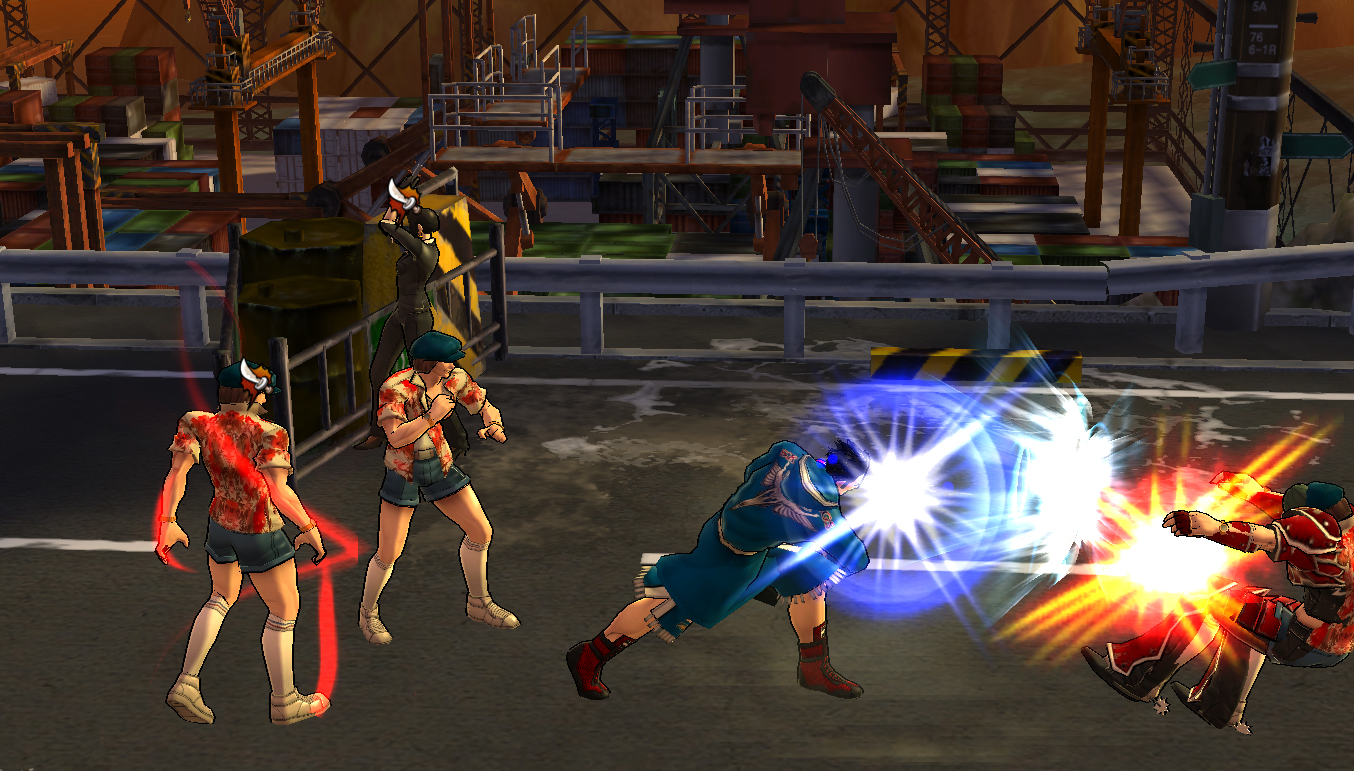 Exploration is all done through third-person perspective as you start engaging in territorial bouts. However, once the level begins, it takes on a more traditional multi-plane 2D level movement, and that’s where the combat begins. As you progress through levels, you’ll start earning some of your own levels which grant you the option of moves that are fully customizable by means of creating move sets. It is in these move sets that you can experiment with what best caters to your personal play style when equipping your combo load out, as you climb in levels to gain more taking a cue from the cult classic PS2 action game Godhand. Traditional power ups like the occasional weapon or stage set piece are present throughout the stage, along with hidden routes and objectives paying tribute to underrated Beat’em ups of old like Final Fight 3 or Double Dragon III. Overall, this adds to the quest aspect of gameplay without ever detracting from the core fundamental of its mindless combat.
Exploration is all done through third-person perspective as you start engaging in territorial bouts. However, once the level begins, it takes on a more traditional multi-plane 2D level movement, and that’s where the combat begins. As you progress through levels, you’ll start earning some of your own levels which grant you the option of moves that are fully customizable by means of creating move sets. It is in these move sets that you can experiment with what best caters to your personal play style when equipping your combo load out, as you climb in levels to gain more taking a cue from the cult classic PS2 action game Godhand. Traditional power ups like the occasional weapon or stage set piece are present throughout the stage, along with hidden routes and objectives paying tribute to underrated Beat’em ups of old like Final Fight 3 or Double Dragon III. Overall, this adds to the quest aspect of gameplay without ever detracting from the core fundamental of its mindless combat.
Fighters Club doesn’t do anything to reinvent the wheel. Hell, it’s the boldest love letter to the nostalgia of the genre you’ll ever see, but its delicate touches of adapting it into a free to play MMO make you appreciate the fact that it’s a Beat’em up first and an MMO second.
While we’ve seen some other new entries like Shank 2 or the latest Dishwasher Samurai keep the genre alive to some extent, it’s in these games where that charm isn’t quite so lost, but more less embraced in a new light. Keep an eye out for them and you’ll soon rediscover nostalgia in a new way -- a way that keeps pixelated blood on your knuckles fresh, even after you just finished knocking out three guys named Joe.
 GDC 12,
GDC 12,  Indie Games,
Indie Games,  beat'em ups,
beat'em ups,  fist puncher,
fist puncher,  shank,
shank,  super combo man | in
super combo man | in  Articles,
Articles,  Features
Features 



